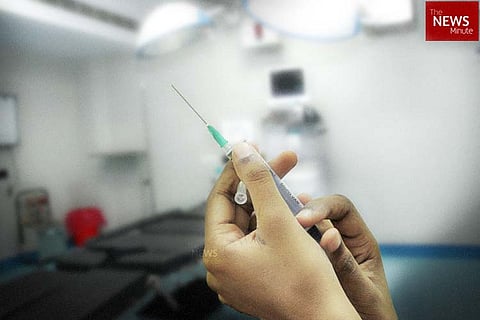

The state-run Fever Hospital in Hyderabad’s Nallakunta has reported over 100 cases of diphtheria in just the last two months, causing fever among many in the city. According to health officials in the city, investigations have revealed that a large number of adults had not taken a booster dose of the vaccine, which they suspect could be the reason behind the sudden influx of cases.
“We are still trying to understand why there are so many cases reported in such a short time period. But from the information we have gathered so far, it seems that many individuals had not taken a booster dose of the vaccine for diphtheria,” stated an official from the District Health Office.
Diphtheria is a disease caused by a bacteria called Corynebacterium diphtheriae. A vaccine is given as part of the national immunisation routine. It is given as the DPT vaccine in combination with a vaccination against pertussis (whooping cough) and tetanus. The first dose of the vaccine is given at 6 weeks of life of a baby, then again at 10 and 14 weeks respectively. Following this, a booster dose must be given between the ages of 16 to 24 months and then a second booster between 5 and 6 years of age. Some doctors also recommend another booster dose be given during the early teen years.
The number of cases of diphtheria being reported have been slowly on the rise since August 2019. Doctors at the time noted that several adults had not ever received a booster dose of the vaccine, which they believed led to the spike in cases.
“There have been a few cases reported of diphtheria, and many adults particularly in their 30s. Many of them are not aware that booster doses are essential for diphtheria. Making people more aware of the need to take booster doses of vaccines will help bring down the cases we see,” states Dr Nagendra from Osmania General Hospital.
Some of the most common symptoms of diphtheria include sore throat, cold, fever, fatigue and swollen lymph nodes. Diphtheria causes a membrane to form in the back of the throat which makes it difficult to breathe. The bacteria also releases a toxin which can cripple the body’s immune system and cause damage to affected areas. Vaccination has been proven to be extremely effective in preventing the disease, which can be highly contagious.